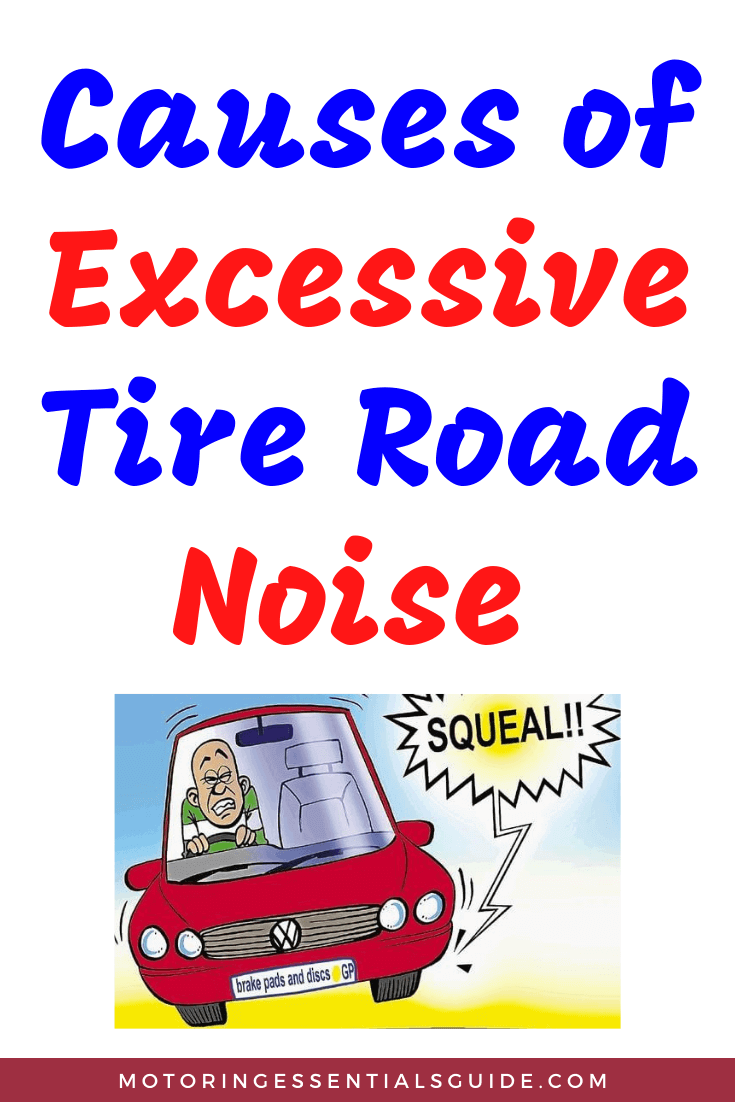Outrageous car tire noise on roads and pavements can signal many things and it’s important that you understand what’s causing it before jumping into any conclusion.
Read on to discover the commonest causes of excessive tire road noise and what it takes to correct the situation (and make you safe).
Causes of excessive tire road noise
We shall kickstart our talk by looking at some of the most obvious triggers of excessive road noise from tires.
1. Recent tire rotation
Whether they are off-road tires, all terrain tires, the best pickup truck tires, or SUV tires, you tend to encounter loud tires after they have been rotated, especially if the tires had cupped to some degree before the uneven wearing levels out.
There’s nothing to worry about here- the disturbing noise should slowly dwindle as the wear pattern balances out.
You should, however, consult a mechanic if the noise grows louder over time- it could be pointing to a potentially serious problem with your tires or wheels.
2. Underinflating the tires
Another time you will get bothersome noises (mostly a squealing or squeaking sound) is when riding under-inflated tires as more rubber is in contact with the surface.
This can be dangerous if you don’t correct it – refer to your car’s manual for inflation guidelines- as it elevates the possibility of suffering a tire blowout.
3. Improper wheel alignment
Alignment problems may as well create weird noise volumes due to the irregular tire movement.
To be safe, take your vehicle for wheel alignment after about 6,000 miles.
4. The wheel balance is off
The very noticeable rolling sound or vibration might also be traced to the wheel or tire being ‘off’ balance assuming no damaged components such as the suspension.
Fixing the balance will ultimately silence the problematic auto tire.
5. Ignoring appropriate driving habits
Driving practices such as overloading your truck, braking or accelerating mindlessly, and cornering at terrifying speeds are bad for your tire and will trigger attention-grabbing noises.
All these make air to compress further in your tires intensifying the typically womp womp tire noise.
There’s no prize for guessing the solution for this- you’ll note a world of difference if you develop a culture of following safe driving habits.
Other factors contributing to excessive road noise from tires
There are a few other reasons why your tire’s humming vibration is louder than usual.
These include:
· Air compression
You’re likely to hear frightening noise levels when compressed air, lodged in the treads, is escaping with bigger tread blocks being particularly susceptible to this.
The easiest way to reduce this loud popping tire noise at highway speeds would be to switch to tires featuring a comfort-optimized tread pitch arrangement.
· Wheel bearings malfunctioning
Another easily identifiable reason behind strange car tire noise is a faulty wheel bearing in particular where the noise becomes amplified when accelerating -the resulting uneven tire wear is to blame.
The most common behavior here is continued rubbing noises and you should have it looked at by a qualified automobile service staff.
· Construction of the tire
Stiff sidewalls are a landmark feature of run-flat tires but lead to a bumpier ride because they lack a mechanism to absorb the noise generated by this category of tires.
Likewise, low-profile tires naturally sound louder since the rubber sidewall cannot adequately absorb the sound. The same scenario duplicates itself in wider tires.
This brings me to the issue of selecting the correct type of replacement tires- the surest way to solve such problems is getting the tire decision right during purchase.
Winding it Up
Perhaps the best way of avoiding alarming tire noises is observing your manufacturer’s recommendations including the tire type and other basics such as pressure levels.
Besides, involving experts can help you arrest causes like bad wheel alignment and a damaged part (for example bearings) before it is too late.
Lastly, stick to professional driving conduct- you don’t want to risk your tires (and life) by engaging in spine-chilling maneuvers such as hard braking for no good reason.
